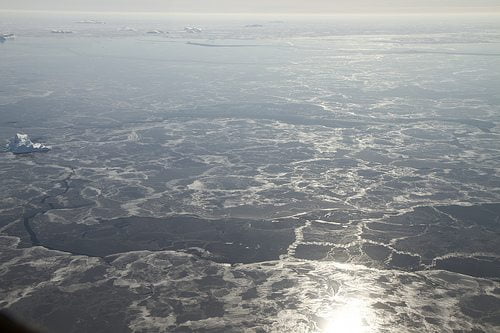

Environment
Global warming still evident despite slowdown, scientists maintain
Experts from the UK and the US have made it clear that the global warming ‘slowdown’, often pointed as evidence that climate change is not happening, “does not invalidate” the scientific reality of climate variations due to human activities.
Scientists from both sides of the Atlantic have come together to release a guide on the state of climate change science, to inform policymakers in the US and in the UK.
They make clear that the slowdown in global warming, witnessed since 1998, “does not invalidate our understanding of long-term changes in global temperature arising from human-induced changes in greenhouse gases”.
They add, “Despite the decadal slowdown in the rise of average surface temperature, a longer-term warming trend is still evident. Each of the last three decades was warmer than any other decade since widespread thermometer measurements were introduced in the 1850s.
“The continuing effects of the warming climate are also seen in the increasing trends in ocean heat content and sea level, as well as in the continued melting of Arctic sea ice, glaciers and the Greenland ice sheet.”
A slowdown in global warming has often been use as an argument by climate change sceptics. However, scientists have explained that the phenomenon has been due to the cooling influence of the Pacific and volcanic activity that has contributed to reflect sunlight.
The document adds, “The combination of these factors, both the interaction between the ocean and the atmosphere and the forcing from the Sun and aerosols, is thought likely to be responsible for the recent slowdown in surface warming.”
Further reading:
Volcanic eruptions explain global warming ‘slowdown’
IPCC climate report: global temperatures likely to exceed 2C this century
Global warming has not paused since 1998, says study
Cooler Pacific temperatures explain slowdown in global warming
‘Pause’ in global warming a result of gaps in data, finds new research


 Environment12 months ago
Environment12 months agoAre Polymer Banknotes: an Eco-Friendly Trend or a Groundswell?

 Features11 months ago
Features11 months agoEco-Friendly Cryptocurrencies: Sustainable Investment Choices

 Features12 months ago
Features12 months agoEco-Friendly Crypto Traders Must Find the Right Exchange

 Energy11 months ago
Energy11 months agoThe Growing Role of Solar Panels in Ireland’s Energy Future





























